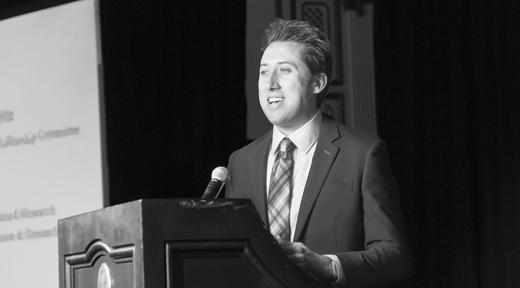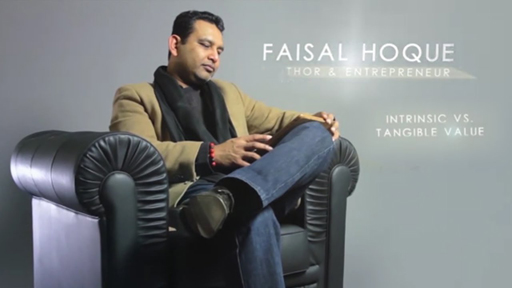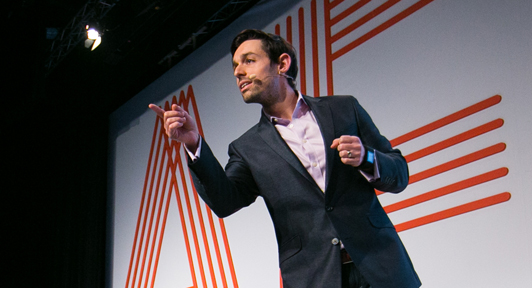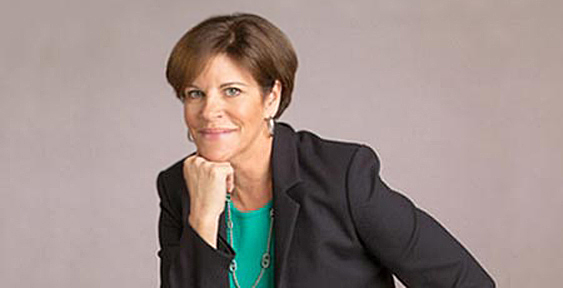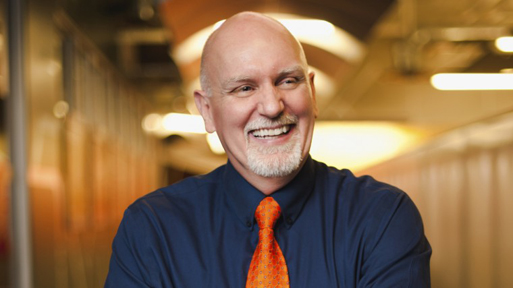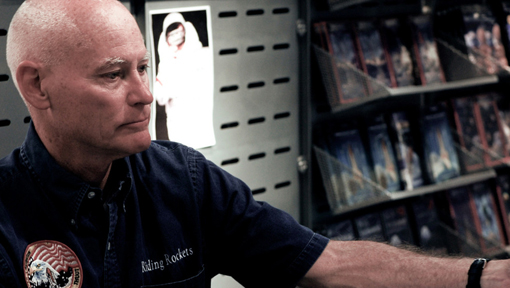
Exploring the Leadership Mindset with Robin Sharma
| Anyone, at any level of an organization (or community or nation), has the opportunity to lead. Why? Because leadership really isn't about a title. It's much more about a mindset + a way of being. | |
| |
 | What does it mean to “lead without a title?" |
 | The old model of leadership is obsolete. It suggested that only people with titles and positions and authority could lead. But dramatically shifting times call for all-new ways of thinking + operating in business. So, we're now in "Leadership 2.0." and anyone, at any level of an organization (or community or nation), has the opportunity to lead. Why? Because leadership really isn't about a title. It's much more about a mindset + a way of being.
Just one example: a while ago I was in Johannesburg, South Africa for a large public event on "Leading Without a Title." I went into the men's room and was greeted with a wonderfully exuberant, "Welcome to my office!" This came from the janitor. He informed me that he'd kept the place spotless, was there to make me feel welcome in his awesome country and saw himself as an ambassador for his nation. This man is a hero to me. He could have played victim and given away his power to do great work, uplift others and make a difference to the fact he has a basic job. Instead, he owned his internal power as a human being, and as a result, exemplified true leadership. No title needed. My “Lead Without a Title” message has resonated deeply with organizations in 60+ nations because it’s all about engaging and inspiring the creativity, energy and capacity of every person--at all levels of the organization. A firm that builds leaders across the company will become undefeatable in an up or down economy and serve as a bright example for all industry peers. |
| See your work as your craft, not as your job. | |
| |
 | What are some of the ways that employees, particularly those who aren’t in managerial positions, can show leadership in their work? |
 | 5 Key Daily Practices come to mind:
#1. See your work as your craft, not as your job. This one's all about a commitment to mastery and a devotion to excellence, whether your a chef or a manager or a taxi driver. We can receive massive amounts of energy and happiness when we deeply stand for the best within our work. #2. Leave people better than you found them. It’s pretty simple: people do business with people they like and trust and who make them feel special. Every moment in front of another human being--whether a teammate or a customer or a stranger--is a vast opportunity to model the values you care most about. So few people really get that every day offers a platform to be a merchant of wow. The ones who do get it rise within the organization and inspire others within the world. #3. Iterate relentlessly. Nothing fails like success. What I mean by this is that the more successful you and your organization become, the more you walk closer to danger. Why? Because success leads to neglect. It is so easy when you become successful to stop doing the things that made you successful. As we and our organizations grow and excel, we often become complacent and sloppy and apathetic. With great success, there's also a tremendous attraction to the status quo--to stop innovating and inventing in an effort to protect all you've built. But that's the kiss of death for a company. You'll get eaten for breakfast by a more nimble peer. As a share in my presentations: "The seduction of safety is always more dangerous than the discomfort of creativity." #4. Radiate optimism and hope even on hard days. Anyone can show leadership versus victimhood when everything's going your way. You show us who you are and what you’re made of by how you perform when everything's falling apart. To truly Lead Without a Title, stay positive, focused, excellent, inventive, energized even when the unexpected comes out to play. #5. Shift from distraction to production. There have never been so many shiny toys for us to chase during every workday. Research says we spend 2.1 hours a day in distraction and are interrupted every 11 minutes. All the sms checking and web surfing and YouTube watching becomes an addiction (the same brain center responsible for attraction to technology is engaged during addiction to cocaine). Here's the point: busy isn't productive. A-Players clear out the noise and become monomaniacally focused on the few projects that will move the needle. Focus on the best and have the guts to say no to the rest. |
 | Is the nature of leadership changing? If so, in what ways? And what is responsible for these changes? |
 | Definitely. Fifteen years ago when I was sharing concepts like "link paycheck to purpose," "being a good business is good for business," "lead where you're planted," "stand for world-class no matter what you do" and "lead your life so all witnesses will be inspired at the end," some in the audience said it was too idealistic a message, that the main aim of business is pure profit. But with globalization, the meltdown of 2008, geopolitical disruption, millennials etc., positional leaders are waking up to the reality that they and their employees need to practice a higher model of leadership. Or be left behind by those who do. |
| To move people to do great things, we must first understand and grow our internal greatness. | |
| |
 | In your book, Leadership Wisdom from the Monk Who Sold His Ferrari, you discuss the eight rituals of visionary leaders. Of these eight rituals, which do you think is the most important for people to cultivate, and which do you think is the easiest to practice? |
 | "Leader Lead Thyself." I've been at this for 20 years and have worked across the planet with the best known organizations in the world ranging from Nike, Microsoft, Starbucks and GE to The Coca-Cola Company, FedEx and Yale University. My insights on elite performance, maximum productivity, innovation and teamwork drive real results. But outer change without inner transformation can be a hollow win.
You see, leaders can never take their people to a place higher than they've been. To move people to do great things, we must first understand and grow our internal greatness. To have fearless employees, we must first release our own fear. To have teams who believe in the vision, we must first believe in ourselves. I guess what I'm suggesting is the starting point of real leadership is developing a world-class character. As we rise in honesty and honor, bravery and decency, mission and humanity, we become powerful influencers across the organization, whether we're the CEO or the receptionist. |
 | What is the most important thing a company can do to encourage and cultivate leadership in their employees? |
 | Give them the learning, the tools and the tactics to become Leaders Without Titles. The victim loves leisure, but the leader loves learning. Education truly is inoculation against disruption, and the person who learns the fastest will achieve the most.
Smart companies are all about growing leaders at every level faster than their competition. And the finest way to do that is to train, develop and inspire the people who trust you to do what's best for them every day they come to work. |
| Passion fuels all great performance. Logic and intellect are cool, but passion gives you the hunger to win. | |
| |
 | Why do you think it is important for people to live with passion, purpose and peace? |
 | Passion fuels all great performance. Logic and intellect are cool, but passion gives you the hunger to win. Great art, athletic achievement and the most important science all come from a human being feeling the passion of a dream unrealized.
As for purpose, we all need it. Science is actually suggesting we are hardwired for it. Yet so few people really have a sense of mission about their work and their lives. And so they fill the best hours of their most valuable days with distractions designed to help them escape the pain of potential unlived. |
 | What keeps people from living with passion, purpose and peace? |
 | Fear, social programming, false beliefs, negative associations, poor environments, mediocre habits. |
 | How is finding inner fulfillment related to showing leadership in our lives? |
 | Happy people become greater leaders. Toxic men and women destroy creativity, productivity and cultures. As we work to find meaning in our work, commit to mastery within our roles, release excuses and deliver results, we grow in confidence. Our self-identity changes. Our self-perception transforms. We catch glimpses of the best within us and access our heroic nature, regardless of what we do within the organization.
And once this happens, we're never the same. We lead in our work and lift our lives. =============================================== To bring Robin Sharma to your organization to improve leadership at all levels, please contact Michael Frick at: Mike@Speaking.com. |

